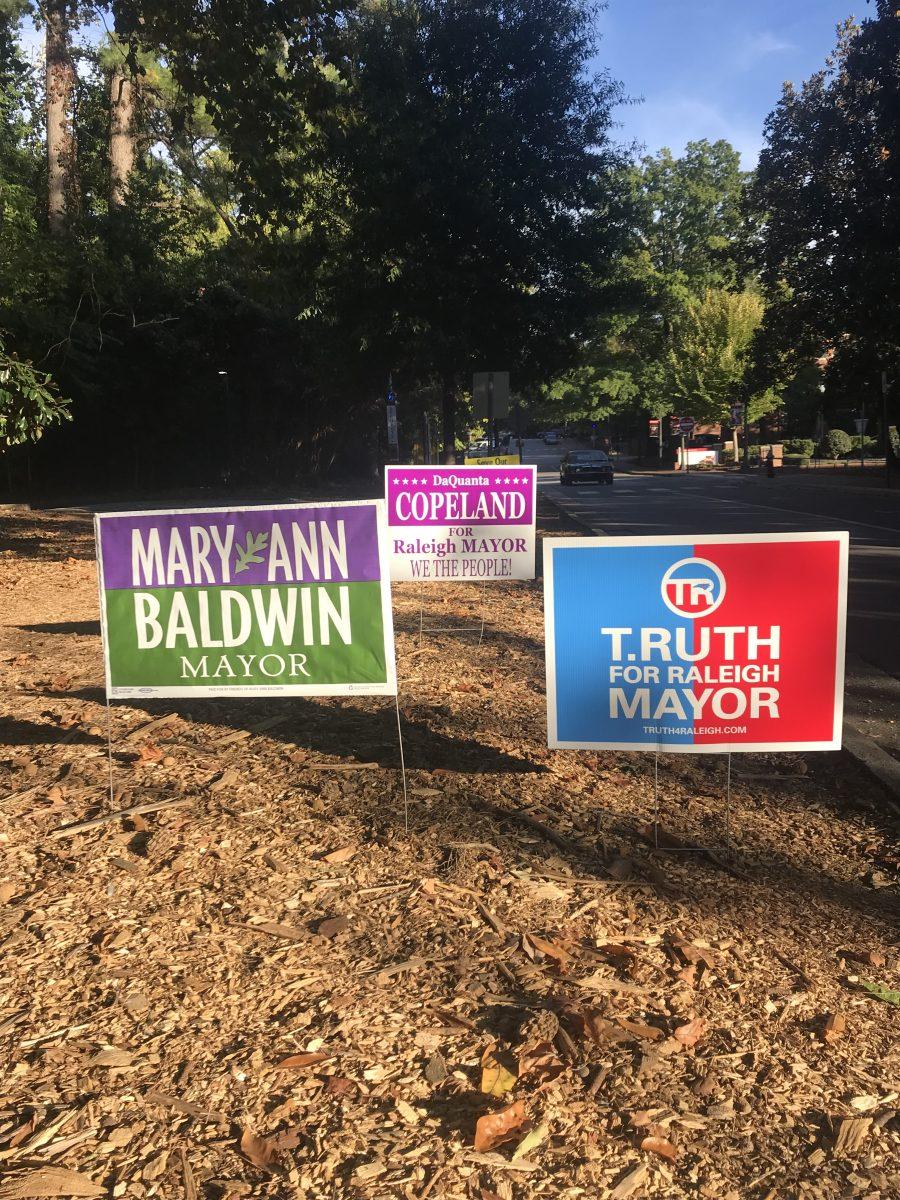As early voting opens up in Talley Student Union, NC State prepares for a flurry of activity in the coming weeks for what will be a consequential midterm election. While the national spotlight is on the state’s closely-contested Senate race, dramatic developments in recent years make local Raleigh elections the most significant in years. In the coming weeks, it is essential that voters invested in the Raleigh community vote out incumbent mayor Mary-Ann Baldwin.
Some of the most dramatic changes in Raleigh this year are the elections themselves; following passage of legislation from the General Assembly, city elections scheduled to take place last year were pushed back to 2022. This was a result of 2020 census numbers realigning electoral districts as well as a problematic decision by the Raleigh City Council.
The resolution, which extended the tenure of each council member by a year, was decided in a closed-door session. With the guidance of Mayor Mary-Ann Baldwin, the city council came to this conclusion without the input of the community. The move was decried by the general public, who were understandably concerned with the decision by council members to extend their own power.
The decision was not the first of Mayor Baldwin’s that departed from community consensus and input. In the first year of her term, Baldwin and the city council surprisingly shut down the city’s Citizen Advisory Councils, again with no public consultation.
In the summer of 2020, the mayor drew criticism for the city’s response to Black Lives Matter protests. As Raleigh police liberally expended tear gas on what began as peaceful protests, Baldwin eventually resorted to enacting a curfew. The public reaction was one of condemnation and outrage towards city officials that laid the groundwork for an eroding relationship between Baldwin’s government and the community at large.
Baldwin has caught the most heat for her ties to development companies. Raleigh is the fourth-fastest growing city in the country, and has seen a correlated increase in rent that has made affordable housing the hot topic of the coming elections. With concerns about development and construction mounting in the community, Baldwin did her public image no favors when she joined Barnhill Contracting Company weeks after city council awarded the construction company a $6.3 million contract.
As the divide between city and community widens, the mayor’s deep allegiances with the development sect are all the more staggering. While it is healthy and positive for a city to grow, doing so without leaving people behind is not a mutually exclusive affair. As Raleigh becomes more unaffordable, the rate of homelessness in the city is skyrocketing. Baldwin’s connections drew a recall effort in 2021, indicating perhaps that the solution is rooted in community and not companies.
Fortunately, that solution is on the ballot this November. Baldwin faces two challengers this year: NC State professor Dr. Terrance Ruth and vice chair of Wake’s Health & Human Services Board DaQuanta Copeland. Both provide a platform better suited for the community of Raleigh.
Ruth, a lecturer in the School of Social Work, has extensive experience with community engagement. His impressive resume includes teaching at-risk youth in Wake County and being the executive director of North Carolina’s NAACP. Ruth has campaigned on rebuilding trust between Raleigh officials and their constituents, seeking to reinstate community engagement lost in previous years. His grassroots campaign has garnered the endorsement of the Wake County Democratic Party over the incumbent, a testament to the strength of his message.
Copeland’s bid for mayor is focused on bringing those pushed out by development back into the conversation. Having lived in southeast Raleigh for 25 years, she has seen firsthand the effects of gentrification on the city as natives are pushed out for new apartments and homes. A single mother and renter, Copeland represents a community needing representation but consistently overlooked by the city.
Both candidates are a breath of fresh air after years of turbulence and disconnect in the city. Their platforms can better represent all people of Raleigh. The reign of Baldwin wades into the narrative of national American politics — distorting the lines between outside interests and genuine representation of the people. For a more inclusive Raleigh, students should vote in a new mayor compatible with the interests of the community.















